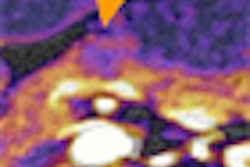
NEW YORK (Reuters Health), Feb 11 - Survivors of childhood cancer who received certain types of treatment are at dramatically increased risk of dying from a heart-related condition later on, new research shows.
Specifically, patients who had received radiation to the heart or had been given the chemotherapy drug anthracycline were many times more likely to die of heart disease compared to the general population, Dr. Florent de Vathaire of Institut Gustav Roussy in Villejuif, France, and colleagues found.
For two decades, de Vathaire and colleagues note, doctors have known that radiation therapy and chemotherapy may up the risk that childhood cancer survivors will develop another cancer later on. And while studies have suggested a link between radiation and heart disease, they add, no researchers have looked at the association between specific radiation dose and risk.
To investigate, the researchers looked at 4,122 childhood cancer survivors who had been diagnosed before 1986 in France and the U.K. All of them had survived for at least five years. Follow-up lasted 27 years, on average, but some patients had been followed for as long as 60 years.
By the end of 2002, 603 of the study participants had died, according to a report in the Journal of Clinical Oncology.
Overall, the researchers found, the cancer survivors were more than eight times as likely to die as people of the same age and gender in the general populations of the U.K. and France. Thirty-two of the patients had died of heart-related causes, for a fivefold overall increased risk compared to the general population.
For patients who had received at least 5 grays of radiation to the heart (a gray measures the amount of radiation absorbed by weight), the risk of heart-related death was more than 12 times greater; for those whose hearts had absorbed more than 15 grays, risk was 25 times greater.
And those who had received at least 360 milligrams of anthracycline per square meter of body surface area during the course of their treatment were more than four times as likely to die of heart-related causes.
Even though the researchers used 5 gray as a cutoff point, this does not mean that lower doses of radiation don't cause harm, "although lower doses do decrease the risk," Drs. Steven E. Lipshultz of the University of Miami and M. Jacob Adams of the University of Rochester note in an editorial accompanying the study.
More research needs to be done on how to prevent patients from suffering heart damage due to radiation or anthracycline, they add. For childhood cancer patients who have already undergone treatment with high doses of radiation or anthracycline, "prevention is probably most useful because the survivor's first cardiovascular event may be sudden cardiac arrest or death."
Source: Journal of Clinical Oncology, online February 8, 2010.
Last Updated: 2010-02-10 16:09:37 -0400 (Reuters Health)
Related Reading
Child cancer survivors have higher heart risk, December 10, 2009
Copyright © 2010 Reuters Limited. All rights reserved. Republication or redistribution of Reuters content, including by framing or similar means, is expressly prohibited without the prior written consent of Reuters. Reuters shall not be liable for any errors or delays in the content, or for any actions taken in reliance thereon. Reuters and the Reuters sphere logo are registered trademarks and trademarks of the Reuters group of companies around the world.


















